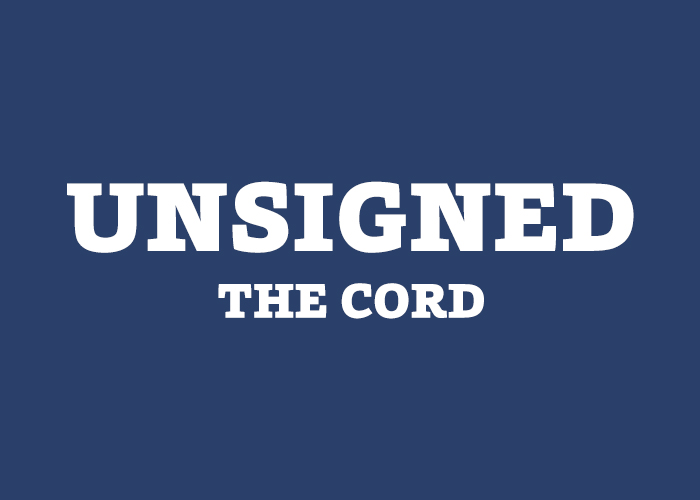Unsigned: Personal stories of tragic historical events are essential

This week in Features, Mitchell sat in on a presentation delivered by a Holocaust survivor at the University of Waterloo. These stories of survivors are much more personal and effective than reading a story in a textbook.
As time goes on, we’re losing more and more of the people who can share their personal stories about the Holocaust and other tragedies.
What happens when all of them have died? Will we forget the history? Likely not, that’s in the textbooks.
But will we ever have the same connection that we get from a personal story?
It’s going to be extremely difficult to regain that connection to history after the people have been lost.
Joseph Stalin, leader of the Soviet Union who was responsible for millions of Russian deaths, supposedly once said that “A single death is a tragedy; a million deaths is a statistic.”
By telling these single tragedies, getting to the personal stories behind the numbers, we’re defeating the “statistic” mentality.
Millions of people died. Millions of individual lives, stories and tragedies were torn apart and flipped upside down.
That’s why it’s so important to hear these people directly. It’s hard to understand the real implications of actions and events when there’s no personal connection.
We have to learn if we ever want to make amends with our past. We have to understand the people who were impacted by these events.
At the very least, we need to listen in order to prevent the same mistakes from happening again.
Many survivors, like many people involved in a horrific event, only begin to feel comfortable talking about their memories and experiences toward the conclusion of their lives.
Whether this is due to the fear of their experiences being lost or to the time they’ve had to heal scars, right now is the time to listen. It’ll be our responsibility to bring these stories to the next generation.
That’s why video is so important. As survivors are succumbing to time, we are losing so many stories and perspectives.
Having a video, even an edited one, is better than losing that history completely.
This doesn’t just go for Holocaust survivors either.
Part of the Truth and Reconciliation Commission was to have indigenous survivors of residential schools tell their stories. These are stories that need to be shared and understood so we never return to that way of thinking again.
The Rwandan genocide, Irish resistance and the IRA, Jim Crow laws, Armenian genocide, Russian revolution — every tragic event has something we have to learn from. We have to listen. We have to think critically.
History, as they say, is often written by the victors.
That’s what goes into our textbooks; that’s what’s traditionally taught. It’s our responsibility to listen to individuals and their experiences.
We rarely hear about the Russian perspective on World War Two, even though they were the ones to liberate Auschwitz and they, by far, lost the most soldiers to the war. Why?
Our books are only a set number of pages and it’s impossible not to have a bias. Individual stories fill in the pieces that authors miss and can’t express. Personal stories are moving.
People become more than a statistic when we acknowledge their memories and perceptions of historical events. Recording people’s stories is so important for remembering the past as more than events. Every event was a moment in someone’s life.
Remembering the people, even after they’re gone, is essential in preventing this kind of tragedy from happening again. We can’t let the tragedies fade into statistics.


